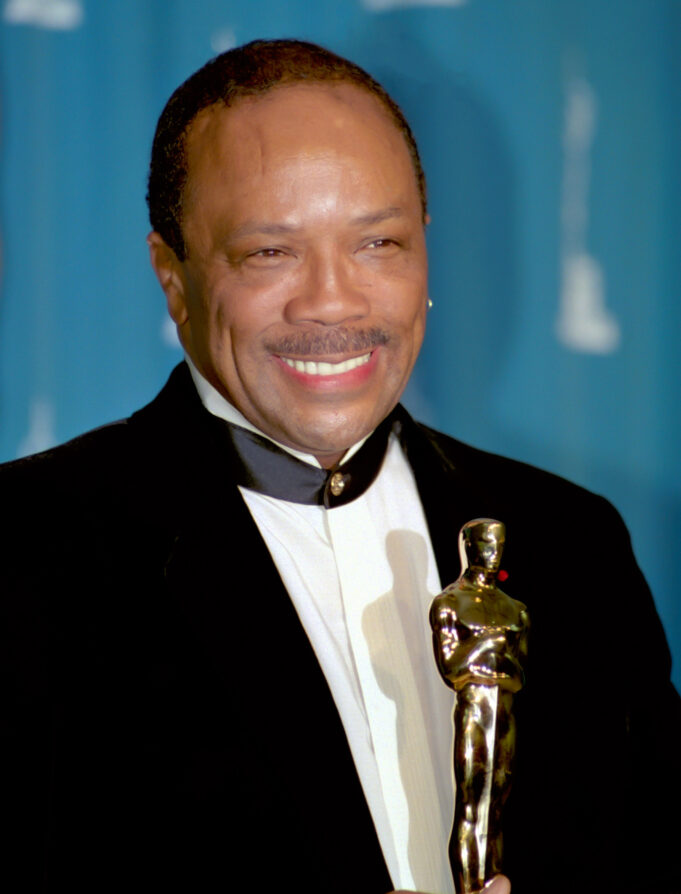LOS ANGELES—The world is remembering the legendary Quincy Jones. The multi-Grammy Award-winning producer, arranger, composer, and multi-media entrepreneur passed away peacefully at 91 on Nov. 3.
Mr. Jones was surrounded at his Bel Air home by his children, siblings and close family, according to a statement The Final Call received via email on Nov. 4 from Sujata Murthy, executive vice president of Media and Artist Relations at Universal Music Group.
“Tonight, with full but broken hearts, we must share the news of our father and brother Quincy Jones’ passing. And although this is an incredible loss for our family, we celebrate the great life that he lived and know there will never be another like him.
He is truly one of a kind and we will miss him dearly; we take comfort and immense pride in knowing that the love and joy, that were the essence of his being, was shared with the world through all that he created. Through his music and his boundless love, Quincy Jones’ heart will beat for eternity,” commented the Jones family in a statement. His family did not disclose the official cause of death.
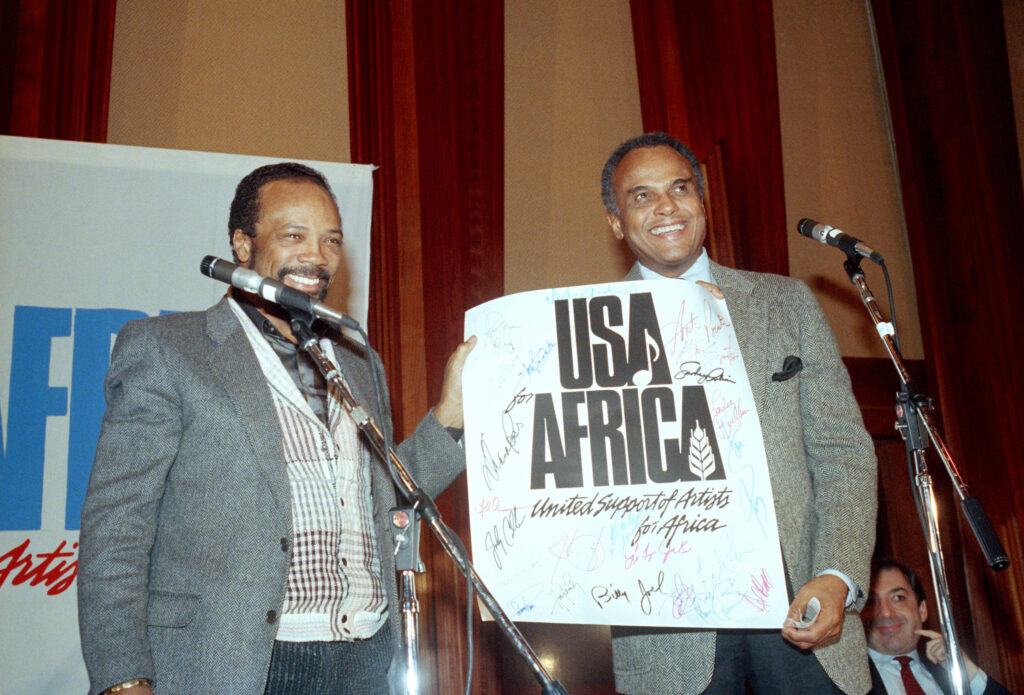
Other statements received from Ms. Murthy include:
“I am saddened to hear of the passing of one of the true greats of our time, my friend, Quincy Jones. His body of work is incomparable. He had the ability to move seamlessly over seven decades—from music genre to genre, artists young to old—and was a master with them all.
Quincy was a true man of music who knew its unique and powerful ability to unite us all. He will be missed but will live on through his incredible body of work.”
—Berry Gordy, founder of Motown
“Quincy was an ever-present force in our lives—in good times and bad—constant and loving. He was our ‘brother from another mother,’ he’d say. We were blessed to know him. We love you, Q—from here to eternity. …”
— Nancy and Tina Sinatra
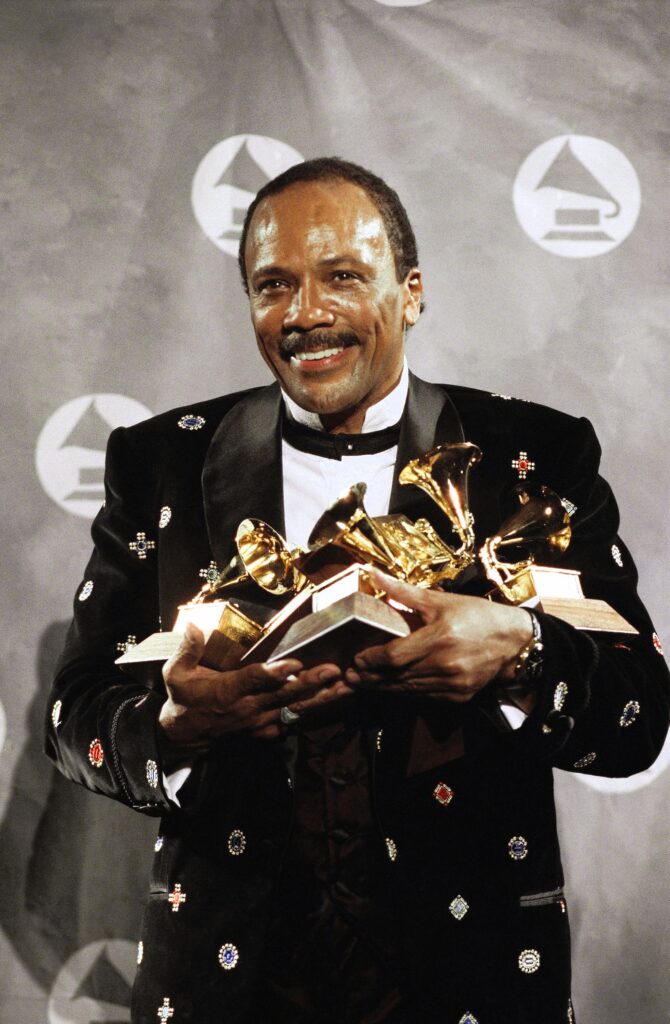
Born Quincy Delight Jones, Jr., in Chicago, on March 14, 1933, Mr. Jones became a music titan who had a profound impact on multiple genres.
According to a short bio released by Ms. Murthy, Mr. Jones was an impresario in the broadest and most creative sense of the word. It reads, “His career has encompassed the roles of composer, record producer, artist, film producer, arranger, conductor, instrumentalist, TV producer, record company executive, magazine founder, multi-media entrepreneur and humanitarian.
As a master inventor of musical hybrids, he has shuffled pop, soul, hip-hop, jazz, classical, African and Brazilian music into many dazzling fusions, traversing virtually every medium, including records, live performance, movies and television.”
Excerpts from his bio include the following celebration of more than 75 years of his performing and being involved in music.
“Quincy’s creative magic has spanned over seven decades, beginning with the music of the post-swing era and continuing through today’s high-technology, international multi-media hybrids. In the mid-50’s, he was the first popular conductor-arranger to record with a Fender bass.
His theme from the hit TV series Ironside was the first synthesizer-based pop theme song. As the first Black composer to be embraced by the Hollywood establishment in the 60’s, he helped refresh movie music with badly needed infusions of jazz and soul.
His landmark 1989 album, Back On The Block—named ‘Album Of The Year’ at the 1990 Grammy Awards— brought such legends as Dizzy Gillespie, Ella Fitzgerald, Sarah Vaughan and Miles Davis together with Ice T, Big Daddy Kane and Melle Mel to create the first fusion of the be bop and hip hop musical traditions;
While his 1993 recording of the critically acclaimed Miles and Quincy Live At Montreux, featured Quincy conducting Miles Davis’ live performance of the historic Gil Evans arrangements from the Miles Ahead, Porgy and Bess and Sketches of Spain sessions, garnered a Grammy Award for Best Large Jazz Ensemble Performance. As producer and conductor of the historic
“We Are The World” recording (the best-selling single of all time) and Michael Jackson’s multi-platinum solo albums, Off The Wall, Bad and Thriller (the bestselling album of all time, with over 50 million copies sold), Quincy Jones stands as one of the most successful and admired creative artist/executives in the entertainment world.”
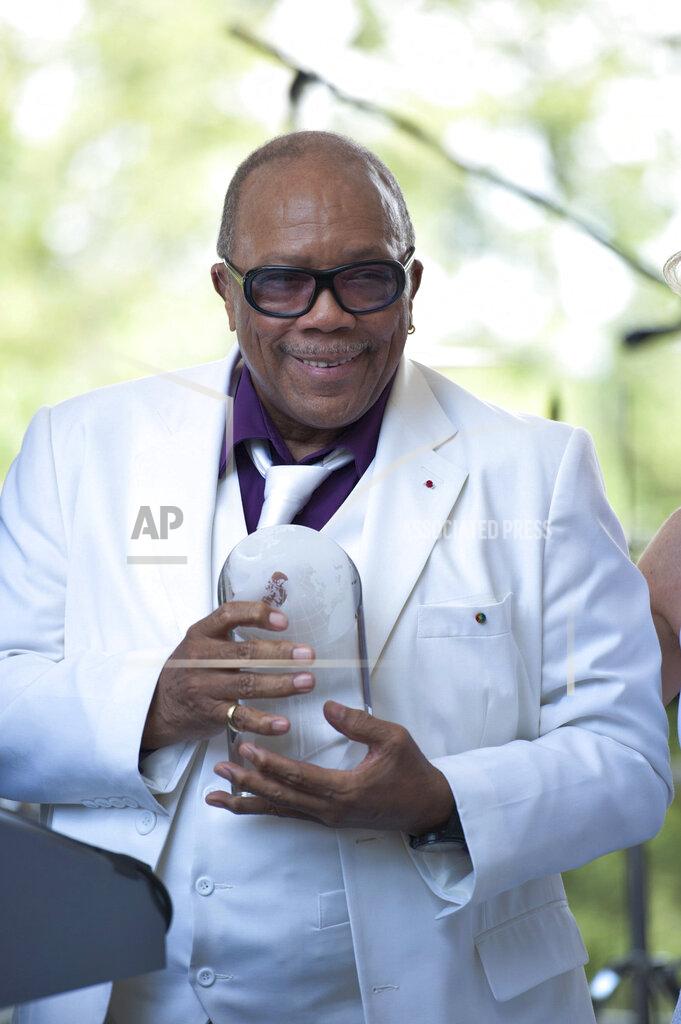
Mr. Jones won his first Grammy of many in 1963 for his Count Basie arrangement of “I Can’t Stop Loving You.” He became vice president at Mercury Records in 1961, the first high-level Black executive of an established major record company.
In 1990, he formed Quincy Jones Entertainment (QJE), a co-venture with Time Warner, Inc., and served as CEO and chairman. It had a broad-ranging, multi-media agenda that encompassed programming for current and future technologies, including theatrical motion pictures and network, cable and syndicated television.
It produced NBC Television’s Fresh Prince Of Bel Air (now in syndication), and UPN’s In The House and Fox Television’s Mad TV, among other syndicated shows and television specials.
As a record company executive, Mr. Jones remained highly active in the recording field throughout the 1990s as the guiding force behind his own Qwest Records, which boasted such important artists as New Order, Tevin Campbell, Andre Crouch, Patti Austin, James Ingram, Siedah Garrett, Gregory Jefferson and Justin Warfield. New Order’s album Substance earned Qwest a gold album in 1987.
Tevin Campbell’s T.E.V.I.N was both a critical sensation and major commercial success, and the label’s release of the Boyz N The Hood soundtrack album was among the most successful soundtrack recordings of 1991. Qwest Records has also released soundtrack albums from the major motion pictures Sarafina! and Malcolm X.
“It’s going to be years before we really, we realize just how prolific he was, how impactful he was, both with his own works and with the work that he did with others,” stated Davey D, author, hip hop historian and journalist.
“We forget that he saved the music industry with Thriller. We say Michael Jackson, but it’s Quincy Jones, as well. …You can’t really sum up Quincy Jones in one or two words or even a couple of paragraphs. He’s a major pillar in the music industry and beyond,” Davey D told The Final Call.
Thriller came at a time when the music industry was stalling and there was a lull, but Mr. Jones’s signature production changed the game, gave it a boost, and redirected people’s attention. “Also at the time, folks were ignoring Black artists, at least in mainstream circles. Couldn’t ignore Michael Jackson,” said Davey D. “But with Quincy, he’s on the Mount Kilimanjaro of music,” he stated.
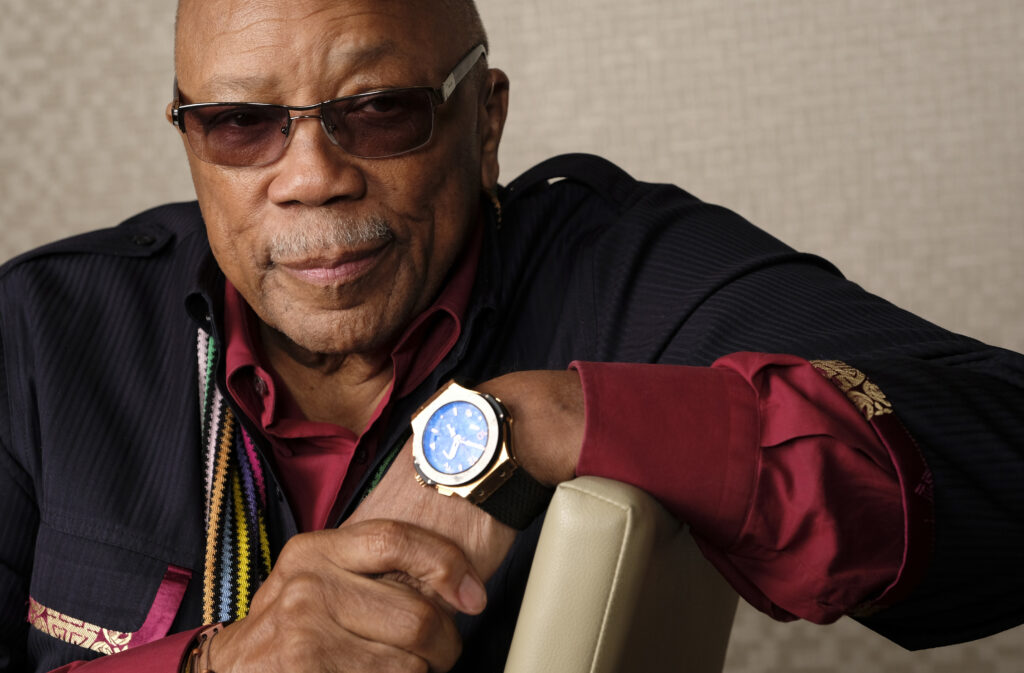
Reactions to Mr. Jones’ death and tributes to him flowed through social media, such as the following on Instagram:
“The whole world mourns the passing and celebrates the life and unparalleled legacy of Quincy Jones, an icon whose genius transformed music and entertainment forever. Our deepest condolences go out to his children, family, friends and fans. Rest in Heaven, Q! You’ll be missed.”
—Stevie Wonder, iconic singer, songwriter, musician
“Quincy Jones is the true definition of a Mentor, a Father and a Friend. He pointed me toward the greatest parts of myself. He defended me. He nurtured me. He encouraged me. He inspired me. He checked me when he needed to. He let me use his wings until mine were strong enough to fly.”
—Will Smith, rapper-turned-actor and film producer
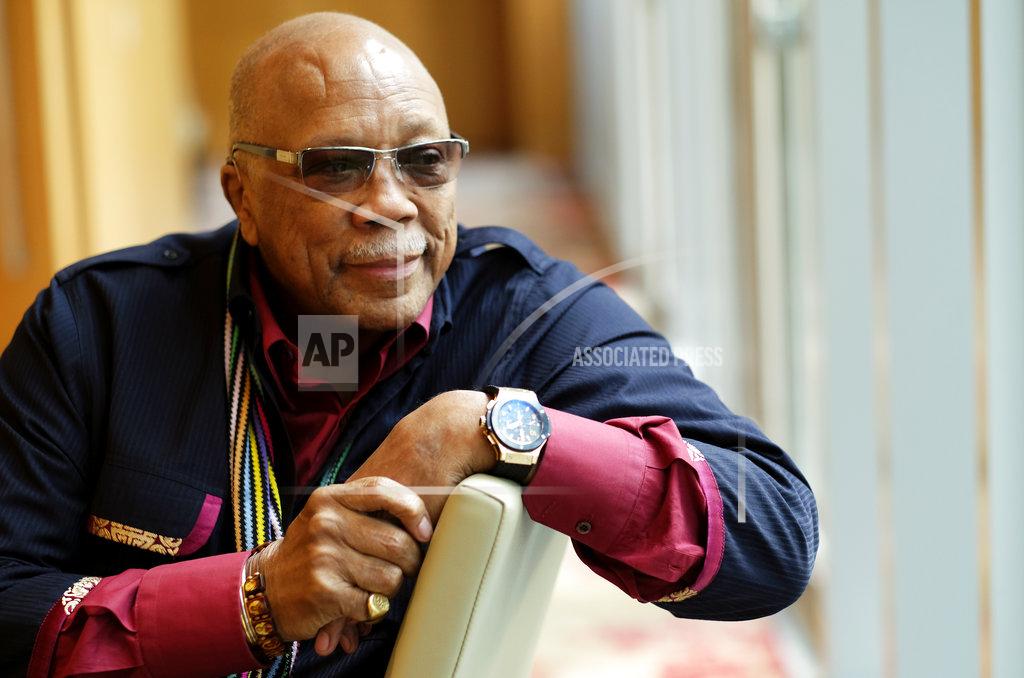
Award winning rapper, producer and entrepreneur Dr. Dre said Mr. Jones is the reason he became a producer.
“His records were my go-to when I started engineering. All of the time that I spent hanging out with him was priceless and I love how open he was—the advice he gave me, the conversations we had have helped me in my life and career. Forever inspired by the incomparable Quincy Jones,” posted Dr. Dre.
As a Black woman hailing in music from Africa, Mr. Jones has always been there, said Angélique Kidjo, Grammy Award-winning Beninese singer-songwriter, in a heartfelt tribute posted by BBC News Africa. Her first encounter with his music was through the movie Roots;
She was intrigued by the music he was playing, shestated. She moved to America, and every time she played in L.A., he would show up, according to Ms. Kidjo.
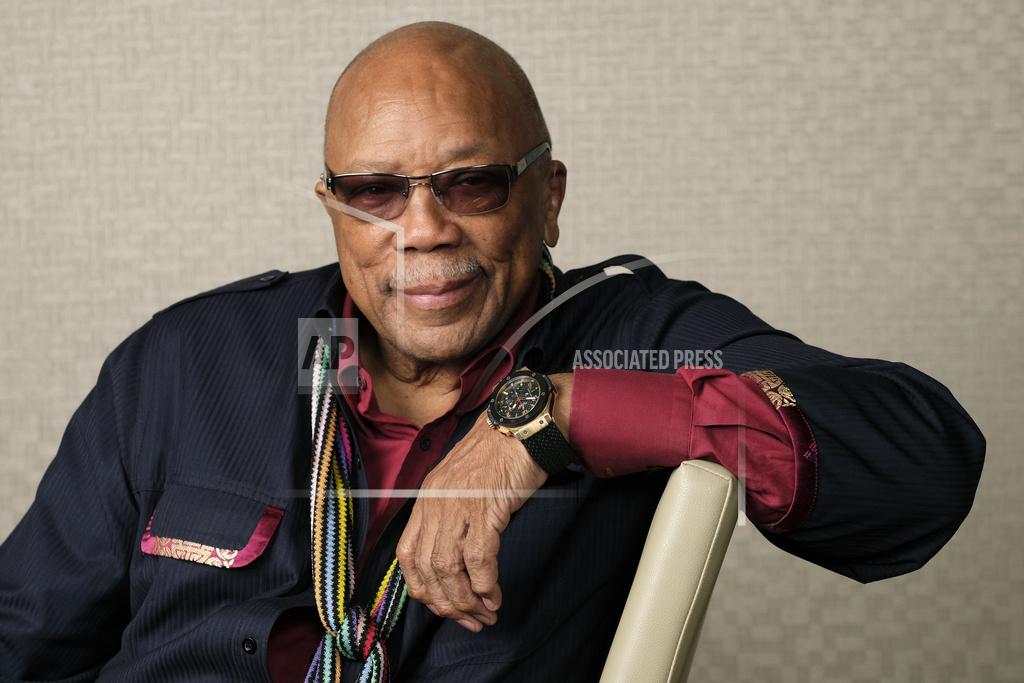
“And it’s something that really touched me deeply. He was one among the first African American artist that has been supportive of me as a young, Black woman in the music that come from Africa. He has always been there, and our friendship started there and expand decades,” she stated.
“One of the things that is really important that I learned from him is you have to be a perfectionist. Nothing is perfect, but as long as you do your art with such attention and care and dedication to the details, to what you want to say, it can be raw, but in that rawness, there has to be perfection for you to be able to touch people. And he is that kind of person.
His love for music and his identity was the same thing. He understood, as an arranger, the complexity of the music that come from Africa and the richness of it that is also the heritage of slavery through blues and all the music that comes in,” Ms. Kidjo continued.
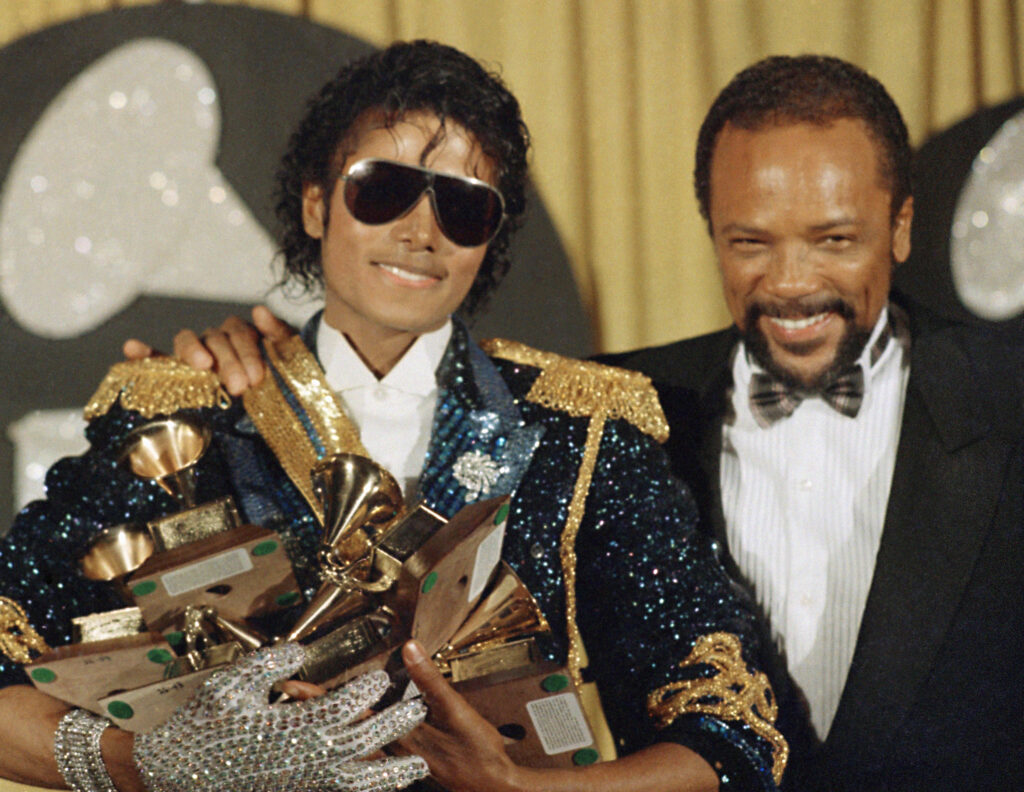
Student Minister Jamil Muhammad, a longtime helper of the Honorable Minister Louis Farrakhan and host of Yardbird Sweets Morning Drive on WPFW in Washington, D.C., emphasized Mr. Jones’ business acumen and ability to blend jazz with pop.
He said that the loss of Quincy Jones is significant to both music and the music industry. He remarked about a beautiful photograph he saw in social media of Mr. Jones, flanked by iconic, prominent musician Kenny Gamble (Luqman Abdul Haqq) and Minister Farrakhan.
“The three of them look so stately and so wise, and I thought to myself, these are great giants in their chosen fields of endeavor, and all three of them, were musical giants as well. The Honorable Minister Louis Farrakhan is not often thought of as a person of great musical talent because of his mission, but he does have that.”
He also remarked on Mr. Jones’ business acumen. “Quincy Jones, not only as a musician but as a businessman, was very impactful in the music business, per se. There were great musicians who were not savvy businesspeople. Quincy Jones did not fall into that category. He was accomplished at both fields of endeavor,” Student Min. Jamil Muhammad told The Final Call.
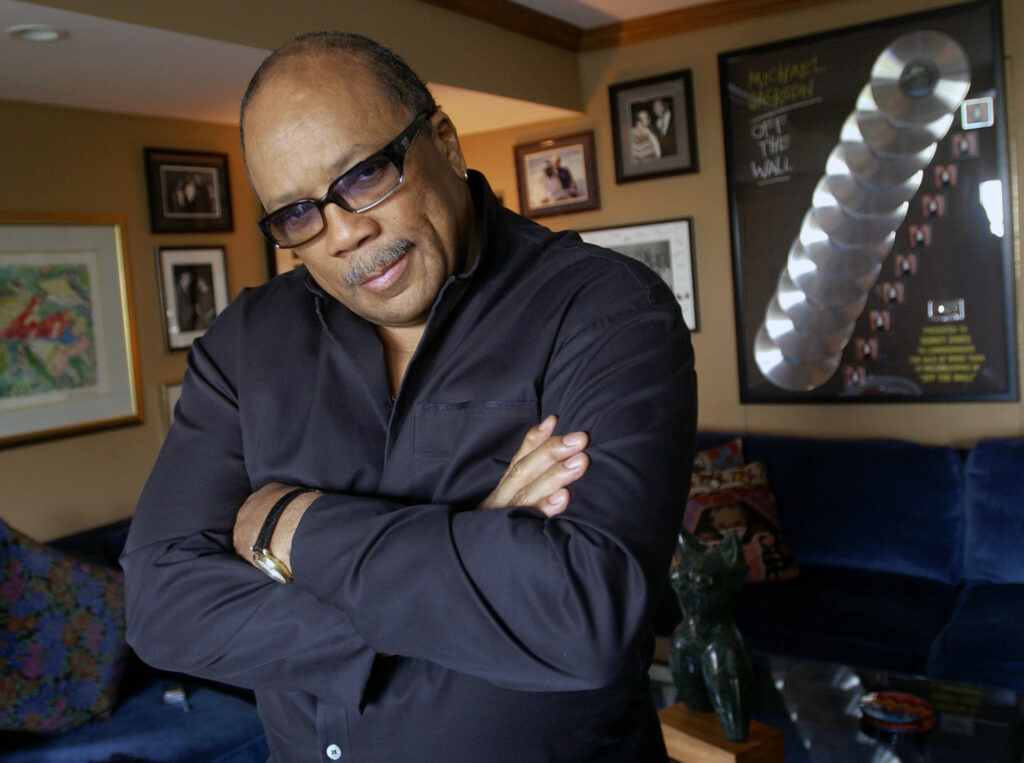
He emphasized that Mr. Jones was unique in that one could not downplay his musical acumen. He reflected on remarks that Mr. Jones could still sit and pull out a score of blank sheet music, and write in the notes and the musical notations to indicate a composition that he was doing.
“The man was talented. … He didn’t just have to hum it. … He wrote it on the sheet of paper like that. … Mr. Jones understood that (music theory and practice), and he also understood how to make it popular for people,” said Student Min. Jamil Muhammad.
According to AP, Quincy Jones is survived by his children Rashida Jones, Jolie Jones Levine, Rachel Jones, Martina Jones, Kidada Jones and Kenya Kinski-Jones and son Quincy Jones III; brother Richard Jones and sisters Theresa Frank and Margie Jay.












